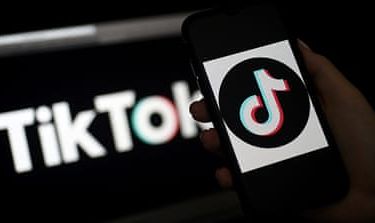China says concerned over India banning dozens of Chinese apps
Beijing says it is making checks to verify the situation as wildly-popular TikTok app denies sharing Indian users’ data.

China says it is concerned about India’s decision to ban Chinese mobile apps such as Bytedance’s TikTok and Tencent’s WeChat and was making checks to verify the situation.
Chinese foreign ministry spokesman Zhao Lijian told reporters during a daily news briefing on Tuesday that India has a responsibility to uphold the rights of Chinese businesses.
Keep reading
list of 4 itemsUS university ties to weapons contractors under scrutiny amid war in Gaza
Scientists discover sperm whale ‘phonetic alphabet’
TikTok owner ByteDance files lawsuit against US law forcing app’s sale
“We want to stress that the Chinese government always asks the Chinese businesses to abide by international and local laws and regulations,” he said.
India on Monday banned 59, mostly Chinese, mobile apps in its strongest move yet targeting China in the online space since a border crisis erupted between the two nuclear powers this month.
TikTok denies sharing Indian users’ data
Earlier on Tuesday, TikTok denied sharing information on Indian users with the Chinese government after New Delhi banned the wildly popular app, citing national security and privacy concerns.
“TikTok continues to comply with all data privacy and security requirements under Indian law and have not shared any information of our users in India with any foreign government, including the Chinese Government,” said the company, which is owned by China’s ByteDance.
“Further if we are requested to in the future we would not do so. We place the highest importance on user privacy and integrity,” TikTok said, adding that it had been invited to a meeting with the Indian government “for an opportunity to respond and submit clarifications”.
In its order, India’s technology ministry said the apps were “prejudicial to sovereignty and integrity of India, defence of India, security of state and public order”.
Among other apps that have been banned are Tencent’s WeChat – downloaded more than 100 million times on Google’s Android – Alibaba’s UC Browser and two of Xiaomi’s apps.
India is the biggest driver of TikTok app installations, accounting for 611 million lifetime downloads, or 30.3 percent of the total, app analytics firm Sensor Tower said in April.
Beijing-headquartered ByteDance had plans to invest $1bn in India and open a local data centre, and had recently ramped up hiring in the country.
— TikTok India (@TikTok_IN) June 30, 2020
Anti-China sentiment has long simmered in India over accusations of cheap imports flooding the country. But a deadly border clash earlier this month brought tensions to the fore with calls to boycott Chinese products.
The June 15 hand-to-hand combat in a disputed Himalayan region resulted in the death of 20 Indian soldiers and saw a heavy deployment of forces along the Line of Actual Control (LAC), the de facto border between the world’s two most populous nations.
The deaths triggered outrage on social media with calls to boycott Chinese goods and Chinese flags set on fire at scattered street protests.
A senior minister in Prime Minister Narendra Modi’s government demanded a ban on Chinese food while a prominent trading union said it would boycott a range of commodities imported from China.
A hotel union in New Delhi last week said it would not allow Chinese guests to stay in their properties.
Millions of Indians downloaded “Remove China Apps”, a mobile application that helped users detect and delete Chinese software before it was removed by Google from its Play Store.
Media reports said Chinese consignments were being held up by customs at major Indian ports.
Despite relations that have been prickly in the past, India and China have steadily built up strong economic ties in recent years. Annual bilateral trade is worth some $90bn, with a deficit of about $50bn in China’s favour.